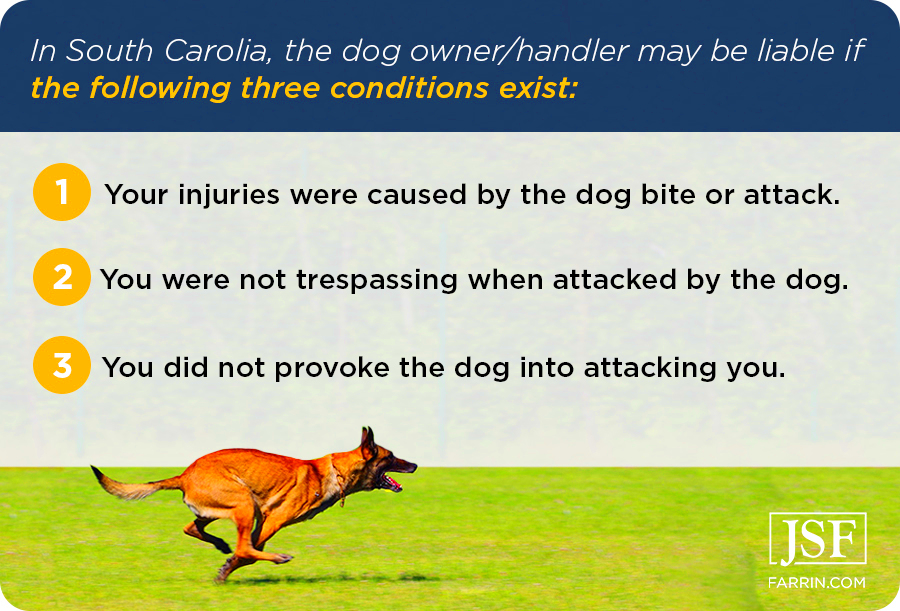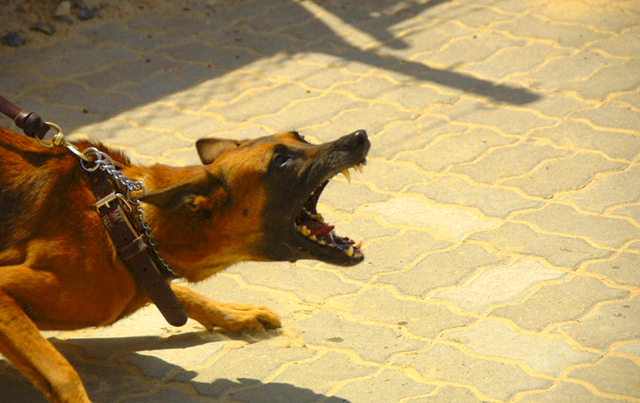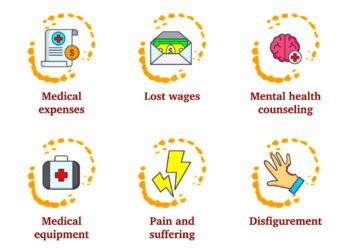Utah Dog Bite Laws and How They Protect Victims
Dog bites can lead to serious injuries and emotional trauma. In Utah, specific laws exist to protect victims and outline the responsibilities of dog owners. Understanding these laws is essential for anyone who might find themselves in such a situation. This blog post will explore Utah’s dog bite laws, how they protect victims, and what steps to take if you experience a dog bite.
Understanding the Legal Definition of a Dog Bite

In Utah, the term “dog bite” refers to any injury caused by a dog that results in physical harm to a person. This includes not only bites but also scratches and other injuries caused by a dog’s behavior. Here are some key points about the legal definition:
- Physical Injury: The injury must be physical, such as puncture wounds, lacerations, or bruises.
- Intent: The law considers the owner’s intent, which can influence liability.
- Location: Injuries occurring on public property or private property where the victim is allowed can be grounds for a claim.
Understanding this definition is crucial, as it helps in determining whether a dog owner may be held liable for the injuries caused.
Liability of Dog Owners in Utah
In Utah, dog owners can be held liable for injuries caused by their dogs under certain circumstances. Here’s a breakdown of the factors that influence owner liability:
- Leash Laws: If the dog was not on a leash in an area where leash laws apply, the owner may be considered negligent.
- Previous Aggression: If the dog has a history of aggression or has bitten someone before, the owner may be liable for damages.
- Owner’s Knowledge: If the owner knew the dog was dangerous and failed to take proper precautions, they could be held responsible.
Utah follows a “strict liability” rule for dog bites, meaning that the owner is liable for injuries even if the dog had never shown aggression before. This principle encourages dog owners to be more responsible in managing their pets.
Victims of dog bites in Utah have the right to seek compensation for medical expenses, lost wages, and pain and suffering. If you’ve been bitten, it’s important to document the incident and consult with a legal professional to understand your rights and options.
Types of Dog Bite Cases in Utah
In Utah, dog bite cases can vary significantly based on the circumstances surrounding the incident. Understanding the different types of cases can help victims and their families navigate their legal options. Here are the main types of dog bite cases:
- Stray Dog Attacks: These involve dogs that are not owned by anyone and can pose a significant threat to the public. Victims may have a claim against local municipalities or animal control agencies if they were aware of the dog’s presence.
- Owner Negligence: If a dog bites someone due to the owner’s failure to secure the animal (e.g., not using a leash), this type of case often highlights negligence. It emphasizes the owner’s responsibility to prevent harm.
- Dogs with a History of Aggression: If an owner knows their dog has bitten someone before or shown aggressive behavior and still allows it to interact with people, the owner can be held liable for any resulting injuries.
- Injury Due to Dog’s Behavior: Cases where a dog causes injury without directly biting, such as knocking someone over or jumping up aggressively, can also be grounds for a claim.
Identifying the type of dog bite case is crucial for establishing liability and understanding your rights as a victim.
Steps to Take After a Dog Bite Incident
If you find yourself the victim of a dog bite, knowing what to do can make a significant difference in your recovery and any potential legal action. Here are essential steps to follow:
- Seek Medical Attention: Always prioritize your health. Get treated for your injuries, even if they seem minor.
- Document the Incident: Take photos of your injuries, the dog, and the location where the bite occurred. This documentation can be crucial for any legal claims.
- Identify the Dog Owner: If possible, get the owner’s contact information and ensure they have valid vaccination records for their dog.
- Report the Incident: Notify local authorities or animal control about the bite. This helps protect others and may assist in any legal proceedings.
- Consult with a Legal Professional: Speak with a lawyer experienced in dog bite cases to understand your rights and options for compensation.
Following these steps can help ensure you receive the necessary care and legal support after a dog bite incident.
Compensation for Dog Bite Victims
Victims of dog bites in Utah may be entitled to compensation for various damages resulting from the incident. Understanding the types of compensation available can help you pursue a fair claim. Here’s what you can expect:
- Medical Expenses: This includes costs for hospital visits, treatments, medications, and any future medical care related to the injury.
- Lost Wages: If your injuries prevent you from working, you may claim compensation for lost income during your recovery.
- Pain and Suffering: Victims can seek damages for the physical pain and emotional distress caused by the dog bite.
- Rehabilitation Costs: If physical therapy or other rehabilitation is needed, these costs can also be included in your claim.
- Property Damage: If personal belongings, such as clothing or jewelry, were damaged during the attack, you could seek compensation for those losses.
To successfully pursue compensation, it’s vital to gather evidence, keep detailed records of your injuries and expenses, and work closely with a legal professional who can help you navigate the process. Understanding your rights can empower you to seek the compensation you deserve after a traumatic experience.
Statute of Limitations for Dog Bite Claims in Utah
In Utah, the statute of limitations refers to the time frame within which a victim can file a lawsuit after a dog bite incident. Understanding this timeline is crucial for ensuring your rights are protected. Generally, the statute of limitations for personal injury claims, including dog bites, is four years from the date of the incident. Here are some important points to keep in mind:
- Filing a Claim: Victims must file their claims within this four-year period to pursue compensation. If you miss this deadline, you may lose your right to seek damages.
- Exceptions to the Rule: In some cases, the time limit may be extended. For instance, if the victim is a minor or if the dog owner is out of state at the time of the incident.
- Importance of Timeliness: Prompt action is not just a legal requirement; it also allows you to gather evidence while the details are fresh. Witnesses can be interviewed, and medical records can be collected more easily.
If you or someone you know has been bitten by a dog, it’s wise to consult with a legal professional as soon as possible. They can provide guidance on the specifics of your situation and ensure that your claim is filed on time.
Prevention of Dog Bites and Community Awareness
Preventing dog bites is a shared responsibility among dog owners, community members, and local authorities. Educating the public about dog behavior and proper handling can significantly reduce the number of incidents. Here are some effective prevention strategies:
- Responsible Dog Ownership: Owners should ensure their dogs are properly trained, socialized, and kept on a leash when in public.
- Community Education Programs: Local organizations can hold workshops to teach people how to interact safely with dogs and recognize signs of aggression.
- Proper Supervision: Children should always be supervised when interacting with dogs, as they may not understand how to behave around them.
- Reporting Dangerous Dogs: Community members should report dogs that show aggressive behavior to local authorities to prevent future incidents.
By fostering a culture of awareness and education, communities can work together to reduce the risk of dog bites and create safer environments for everyone.
FAQs about Utah Dog Bite Laws
If you have questions about dog bite laws in Utah, you’re not alone. Here are some frequently asked questions that can help clarify common concerns:
- What should I do if I am bitten by a dog? Seek medical attention immediately, document the incident, and gather information about the dog and its owner.
- Can I sue if the dog was provoked? Yes, but it may affect the outcome of your claim. If the dog was provoked, it could reduce the owner’s liability.
- Are dog owners always liable for bites? Not necessarily. If the victim was trespassing or provoking the dog, the owner may not be held fully responsible.
- How much compensation can I receive? Compensation varies based on the severity of the injuries, medical costs, lost wages, and pain and suffering.
- Is there a leash law in Utah? Yes, many areas have leash laws requiring dogs to be leashed in public spaces. Owners can face fines for violations.
These FAQs aim to provide clarity and support for those navigating the aftermath of a dog bite. If you have further questions, consider reaching out to a legal expert for personalized advice.
Conclusion on the Importance of Understanding Dog Bite Laws
Understanding dog bite laws is essential for both dog owners and victims. These laws not only clarify the responsibilities of pet owners but also empower victims to seek justice and compensation for their injuries. Knowledge of the legal landscape can lead to safer communities and better relationships between dog owners and the public.
As we have discussed, knowing the types of dog bite cases, the steps to take after an incident, and the compensation available can significantly impact the outcome for victims. Furthermore, understanding the statute of limitations ensures that victims don’t miss their chance to file a claim.
Community awareness and education about responsible dog ownership can help reduce the number of dog bite incidents. By encouraging responsible behavior among dog owners and fostering understanding of canine behavior among the public, we can work together to create safer environments.
In summary, being informed about Utah’s dog bite laws is crucial for everyone. Whether you are a dog owner or a potential victim, understanding your rights and responsibilities can lead to better outcomes and contribute to a more harmonious coexistence between humans and dogs.


